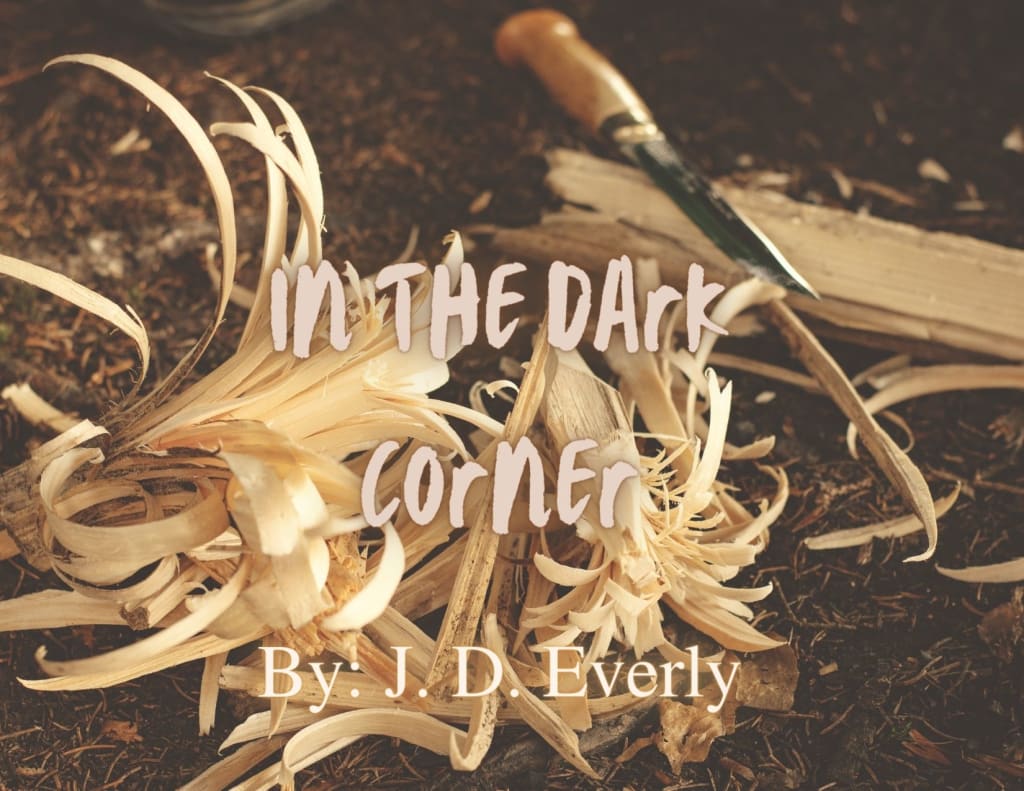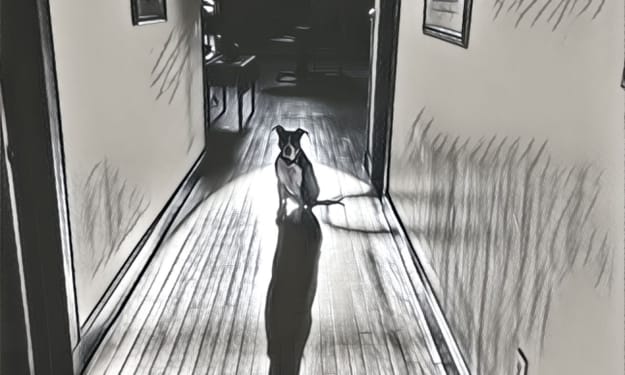
I am going to be sick. Or cry. Maybe both.
“Take a right,” I say to Jackson in the driver’s seat, pointing to the unmarked lane that branches off the lonely one we’re on.
“Are you sure, G?” he asks, taking the turn without waiting for my answer.
He knows I’m not wrong. This is too important for me to be wrong about.
The tire of the van finds a pothole in the dark, bouncing me around in my seat. It does nothing good for the state of my stomach right now.
“You know we can come back tomorrow in the daylight.”
Looking at Jackson in the dark, with only the glow from the dash to illuminate him, I don’t see the trepidation on his face that I hear in his voice.
But I lean over the console between us and kiss his cheek.
“Thank you for coming with me,” I say, my voice hushed even though I’m not sure why.
He takes my hand and holds it to his lips, tenderly letting them play along the back of it.
“Goldie, they are important to you. That means they are important to me, too.”
Of all the names people have for me, J almost never uses any of them except G. His use of Goldie now only makes my heart constrict more.
A flat expanse of brittle brown grass stretches ahead of us for miles, the gravel road running through it, lined with fencing.
But looks are deceiving. I know where we’re going.
“Pull over here. I need to walk the rest of the way.” I squeeze his hand and tug mine loose.
If I accept too much support from J, I’m not sure I will be able to do this.
He turns his face to me, only for a moment, before he pulls the van to the side of the road, puts it in park, and kills the lights.
“Maybe he won’t be there. Maybe he sold the place,” he says, for the hundredth time since we started this three-state journey.
“Even if he’s not there, this is the best plan. This feels…”
Right?
Respectful?
Proper?
I don’t have the words to explain why I need to do it this way. Not even to explain to J. He knows me better than anyone else. He usually understands me when I’m not making a lot of sense.
“You know what’s funny?” I ask, slipping on my jacket and grabbing the package I brought for the occasion.
“What? That we’re in the middle of nowhere in the dark?” He puts his jacket on too and grabs two water bottles.
I smile and shake my head, “No. That—more often than not on this trip—I haven’t had the words.”
He smiles at me. The whites of his eyes and his teeth bright in the glow compared to the deep dark of his skin. Stars just for me.
“Not every moment can be made into a poem. That’s what I’m for,” he says, turning off the van and opening his door.
J’s paintings are beautiful, but even his canvas couldn’t show all the thoughts running through my brain, or the dance my stomach is doing, as I open my door and climb out.
We walk in silence, his head turning to take in the vast sky hanging above us in the Montana night.
But I can’t marvel with him at the big sky of big sky country. Not because I’ve seen it before—it’s still amazing no matter how many times I look at it—but because all I can think about is what I need to do. Why I’m here. And only the stars of his eyes are comforting right now.
After walking for long enough that the dust we’ve kicked up is a thin layer on my skin, I spot it. The spot where the fence changes.
“Here, follow me,” I say, crouching down to climb between the rails of the fence I helped replace, trailing my hand along the wood as I do.
J is awkward trying to fold his much taller body through the fence.
Maybe all that time working out here gave me more skills than I even realized. Because I could show him exactly the rhythm that works best to make it to the other side in half the effort.
One more thing this place gave me.
A lump forms in my throat and I heave down deep breaths of the air that is only starting to gain the chill I knew would come as the night took hold.
I don’t want to cry. I’ve cried so much already. And I don’t think they would want me to.
“Do you think the cows are going to get spooked?” J asks, stumbling on something hidden in the grass of the field.
“No. Even if the step-dick replaced them all by now, cows usually don’t care who is in the field as long as you leave them alone.”
More lessons I learned without realizing.
“It’s still weird when you talk about farm stuff,” J says, and I laugh.
The sound carries until it’s a haunting staccato on the wind.
“We should probably be quiet,” I whisper, “Just in case.”
J nods and we keep walking, making our way through more fences and more fields, until we come upon the orchard.
Passing through the trees, the air is sweeter and wraps around me like a hug I will never feel again.
My breath grows ragged, and I wonder if I can handle this for the hundredth time.
Just past the orchard, the house comes into view. One light glows in the window over the kitchen sink.
They should be there. But if they are, it’s only as memories now.
The garden lies between the orchard and the house.
It’s in worse shape than I’ve ever seen it before. She would be so disappointed. I want to dig out the weeds, lay down hay in the places that don’t have plantings, and walk out with baskets full of things ready and waiting to be harvested.
But the light on over the sink…
So, instead, I open the bundle I brought and take out the small box inside.
Digging in the dirt is easy, it gives way beneath my hands like it wants someone to work with it. Like it was waiting for me.
Once the small box is buried, I collect some of my flowers from along the edges of the garden using my knife that he gave me—the one that saved my life—to cut them.
J follows along with me, occasionally extending a water bottle toward me in case I want a drink. But if I take it, will I cry?
If I hydrate, will the tears fall? And if they do, will they ever stop?
We make our way across the yard, not bothering to be sneaky.
Because if the step-dick wakes up and finds me here, I no longer care.
Finally, we are at the end of the road. We are where I prepared to get to.
More than the fence, the orchard, the house, and the garden.
This place.
Their old barn is where they are to me.
Aged wood, long in use, still stands silent sentinel over the land they worked and called home. The land I was a part of for a short time that seems like it will never end now.
Even in Montana, in the open, there isn’t enough air. I gulp it down.
If I fill myself with enough of it, maybe I can keep the heaviness in the backs of my eyes and thickness in my throat from clawing out of me.
Somehow, the package in my hands is heavier than when I got out of the van. Heavier, even as it’s emptier.
Of course, the step-dick left the barn door open enough for me to slip inside. There will be a whole contingent of animal interlopers in here by morning.
But I have one job tonight, and fixing things for the step-dick—no matter how much I want to for them—isn’t it.
Inside, the barn is completely black, and somehow that makes it so I can hear the small noises within it better. I close my eyes and bask in the familiar and comfortable smells and sounds.
Through my eyelids, a flare of light blooms alive.
J has the flashlight out of his pocket and on low.
It isn’t much in the way of light, but it’s enough for me to do what I need to.
Stalls in the barn are a hot commodity, and even so, they always kept the one at the back on the right clear. Now is no different.
Equipment, like bridles, straps, ropes, and even boots line the walls.
Along with a bench.
The flowers from the garden, the marigolds, are first, and I lay them on the bench. Next is the small box that I tuck underneath.
And finally, the piece of paper and my knife.
J holds the light for me, and I start to copy the words, digging the blade of my knife into the well-worn wood.
Soon, the words of the poem I wrote, the words I wanted them to hear even though they were already dead, appear in jagged and gouged lines that swim in my tears.
My hand slips, and my life saving gift, my knife that he gave me, slices into my hand.
The poem is stained in tears and blood, just like the last time I saw them. And just like then, I wish there was more I could do. More I could give.
I wanted it to be my blood, not theirs, that day. Today it is.
For them, it makes me smile. For them I would bleed every day if it meant getting them back.
But that won’t happen.
All I can do now is this.
Remember.
My grandparents.
About the Creator
J. D. Everly
As a writer in the PNW I spend far too much time in the woods, but that inspiration and an unhealthy dose of insomnia has led me to be the author of multiple books and stories in a range of genres.






Comments
There are no comments for this story
Be the first to respond and start the conversation.